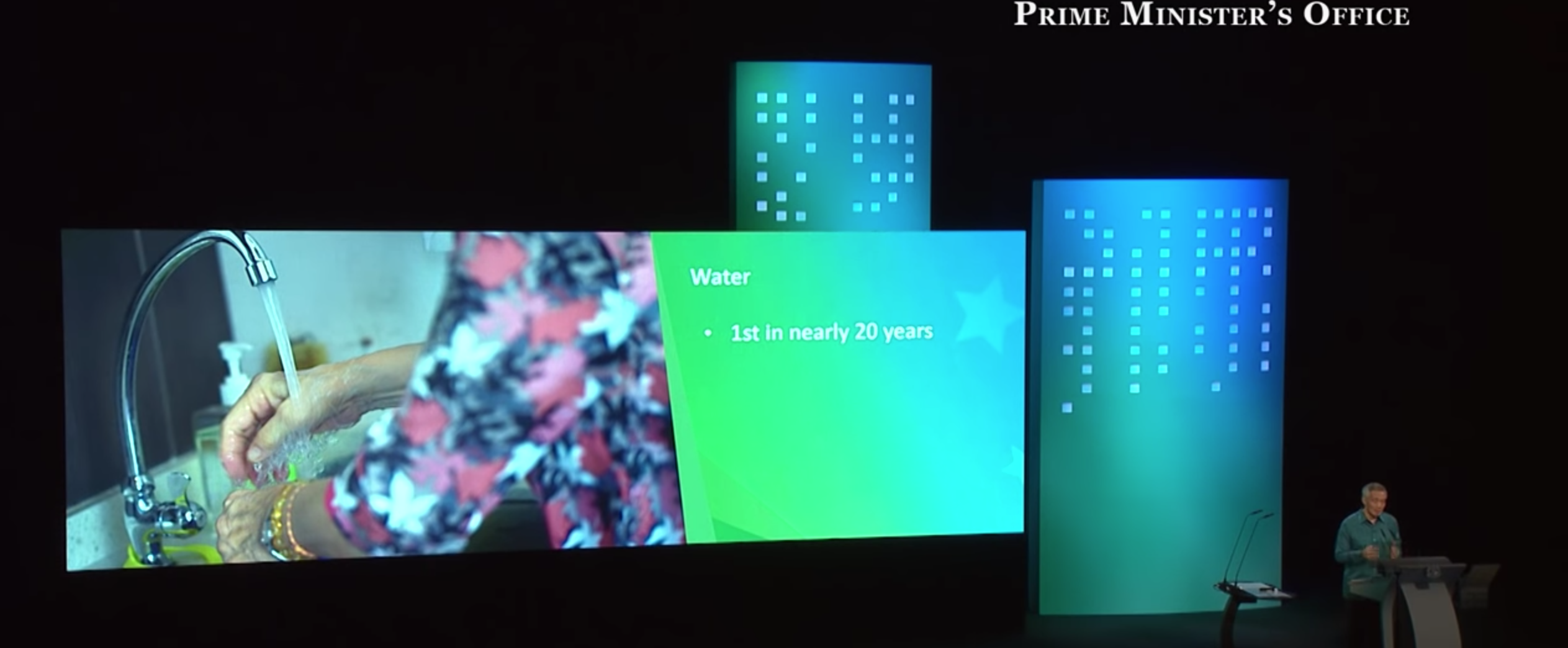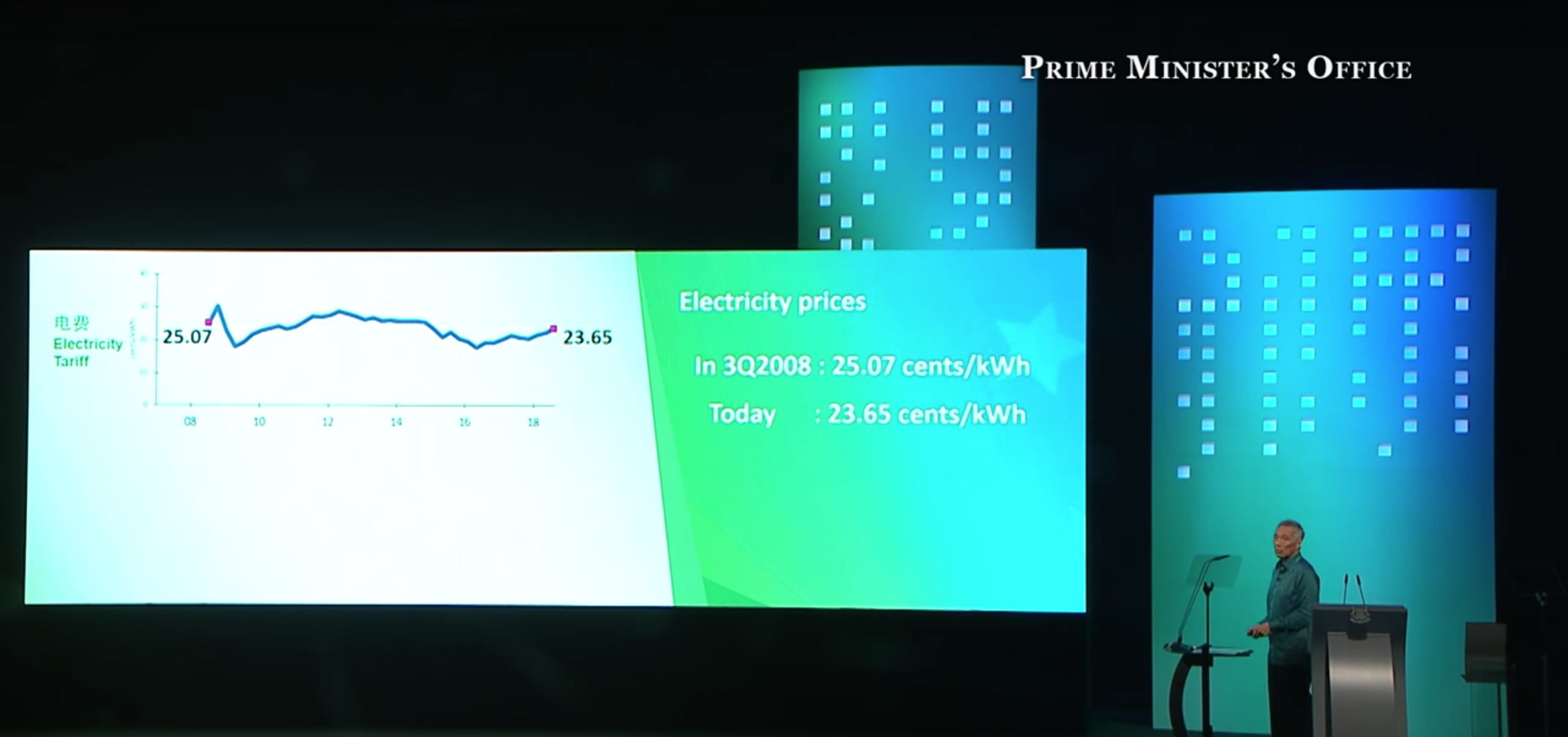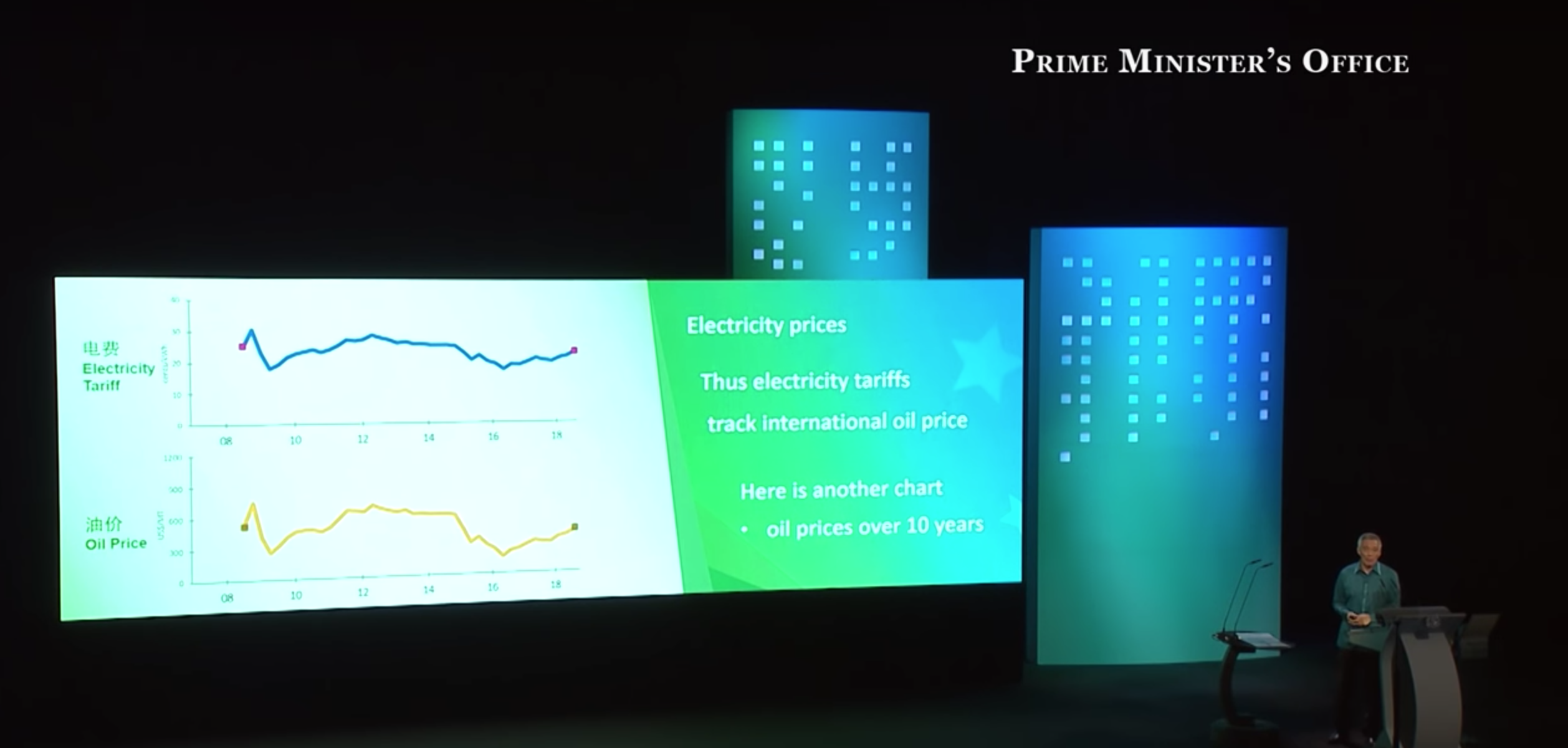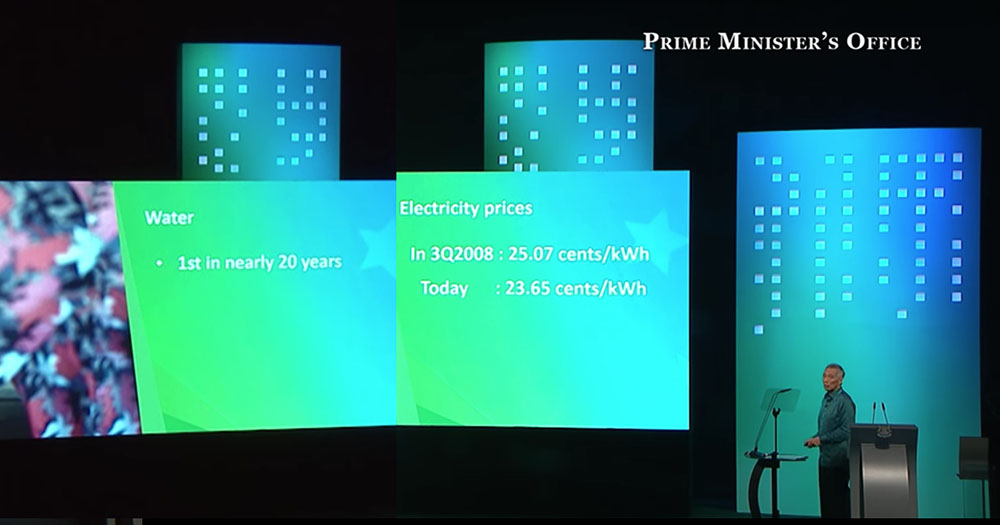For this year's 2018 National Day Rally on Aug. 19, Prime Minister Lee Hsien Loong spoke at length about the costs of utilities in his Chinese speech.
Stating that the government "has tried to keep inflation low and prices stable, but we cannot completely prevent prices from increasing".
He explained why the price of water was being increased and how the price of electricity was actually cheaper compared to ten years ago, in 2008.
Mostly, it had to do with external factors.
Water as a matter of national survival and security
Lee opened up by speaking about how the increase in the price of water over two phases, beginning from last year, was actually the first increase to be done in almost 20 years.
 Source: Screenshot from PMO Youtube Channel
Source: Screenshot from PMO Youtube Channel
This is because the cost of producing our own water has increased greatly over the past 20 years, along with the need to build more NEWater factories and desalination plants.
More importantly however, was how water has always been an issue of Singapore's strategy and security, as well as sensitive foreign policy, as Lee subsequently added.
It is therefore unsurprising that he subsequently calls the terms of the 1962 Water Agreement "sacrosanct" in his English speech.
Taken in this light, the implication here is that the increase in water prices is also a price that must be paid for an issue that goes far beyond the costs of living.
Electricity is tied to global oil prices
Turning to electricity, Lee started his speech in this area by first pointing out how the price of electricity is actually cheaper now compared to a decade ago. Specifically, 1.42 cents per kilowatt hour cheaper.
 Source: Screenshot from PMO Youtube Channel
Source: Screenshot from PMO Youtube Channel
Addressing the issue on why there is the perception that the price of electricity is going up, Lee notes that this could be because people only take notice when the price goes up, but when it goes down, either no notice is taken or people forget about it quickly.
[related_story]
Lee then explained that the price of electricity is not controlled by the Government because much of Singapore's electricity comes from natural gas, which in turn means that the price of electricity is tied to global oil prices.
Lee showed how the changes in electricity prices mirrors that of oil prices through the help of some graphs.
 Source: Screenshot from PMO Youtube channel
Source: Screenshot from PMO Youtube channel
On why Singapore couldn't fix electricity prices, Lee stated that this is due to the fact that Singapore is neither an oil-producing country nor a natural gas-producing country. If the Government subsidised the price of electricity, it would be unsustainable in the long-run because of the sheer cost.
What's more, if the price of electricity were to be subsidised, it would mean that higher-income households would get bigger subsidies due to their higher consumption of electricity, making it a bad solution in helping low-income households.
As such, the underlying implication here is that the changes in the price of electricity is tied to the geopolitics of oil-producing countries such as the Middle Eastern countries and the USA, who can directly affect oil prices.
U-Save rebates is the best approach for now
Lee then used this reasoning to quantify why the U-Save rebates for families living in HDB flats is by far the most effective measure in subsidising utility bills for the public.
It gives bigger utility subsidies for lower income households, with people living in one- and two-room flats receiving up to $400 in such rebates.
Lee concluded his speech on water and electricity prices by stating:
I have spent some time today explaining the relationship between utility prices, energy prices, and U-Save rebates. I hope people will understand that we have adopted the best approach to lessen the burden of Singaporeans.
Top Images from PMO YouTube
If you like what you read, follow us on Facebook, Instagram, Twitter and Telegram to get the latest updates.
